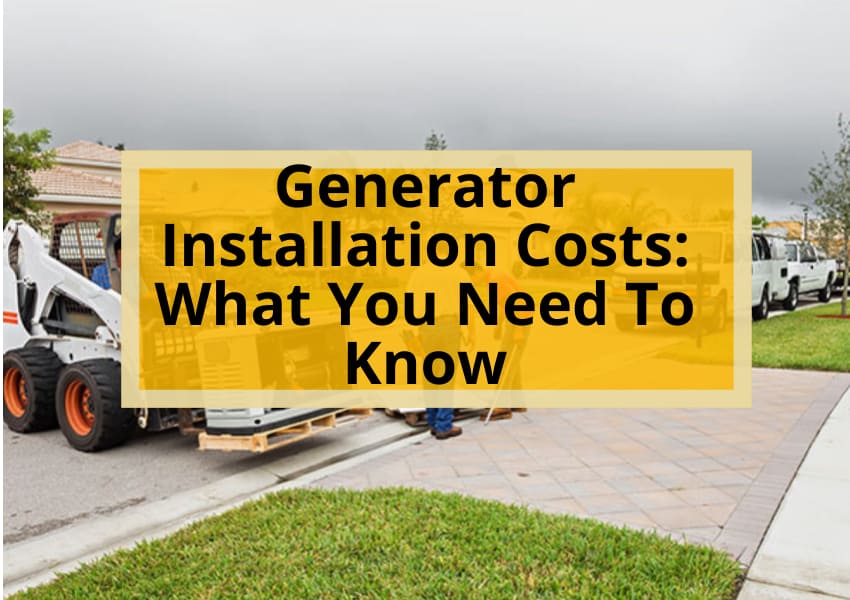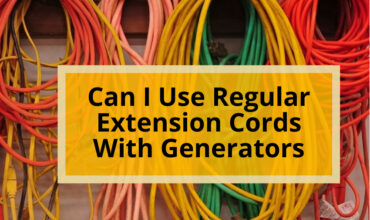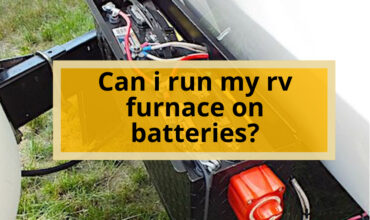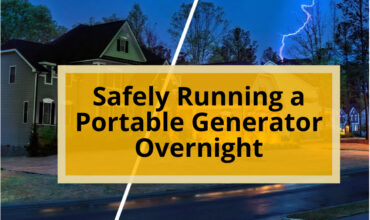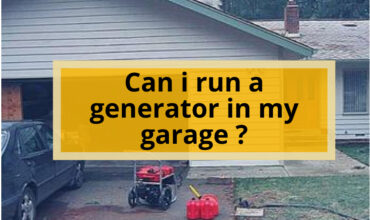Generator installation costs can be a significant investment for both homeowners and business owners seeking backup power during outages. The cost of a generator installation can vary widely depending on the size and type of generator, as well as the specific needs of the property.
Standby generators are a popular choice for backup power, and are typically measured in kilowatts, with varying sizes available to suit different needs.
It’s important to consider both the cost of the generator equipment and the installation expenses when budgeting for a generator installation. The total cost can range from around $10,000 to well over $20,000, depending on the specific requirements of the property.
To ensure the right choice of generator and installation options, it’s recommended to consult with a qualified industry professional before making a purchase. In this article, we will explore the various factors to consider when evaluating generator installation costs, including generator sizes and types, installation considerations, and expert advice for choosing the right equipment and installation for your needs.
Generator Sizes and Types
In order to determine the appropriate size and type of standby generator for a given home, a qualified installer can calculate anticipated electrical loads and recommend options such as a 20kW air-cooled generator, which is the generator of choice in 70% of all installations.
Air-cooled generators are typically less expensive than their liquid-cooled counterparts and require less maintenance. However, they may not be suitable for larger homes or all-electric homes that require higher power output.
Liquid-cooled generators, on the other hand, are better suited for larger homes or all-electric homes since they can provide higher power output and run continuously without overheating. However, they are generally more expensive and require more maintenance.
In addition, the type of fuel used can also affect the cost and efficiency of the generator. While diesel generators may be more fuel-efficient and have a longer lifespan, they may be more expensive to maintain and repair. Propane generators, on the other hand, may be less expensive to maintain and repair but may have a shorter lifespan and lower fuel efficiency.
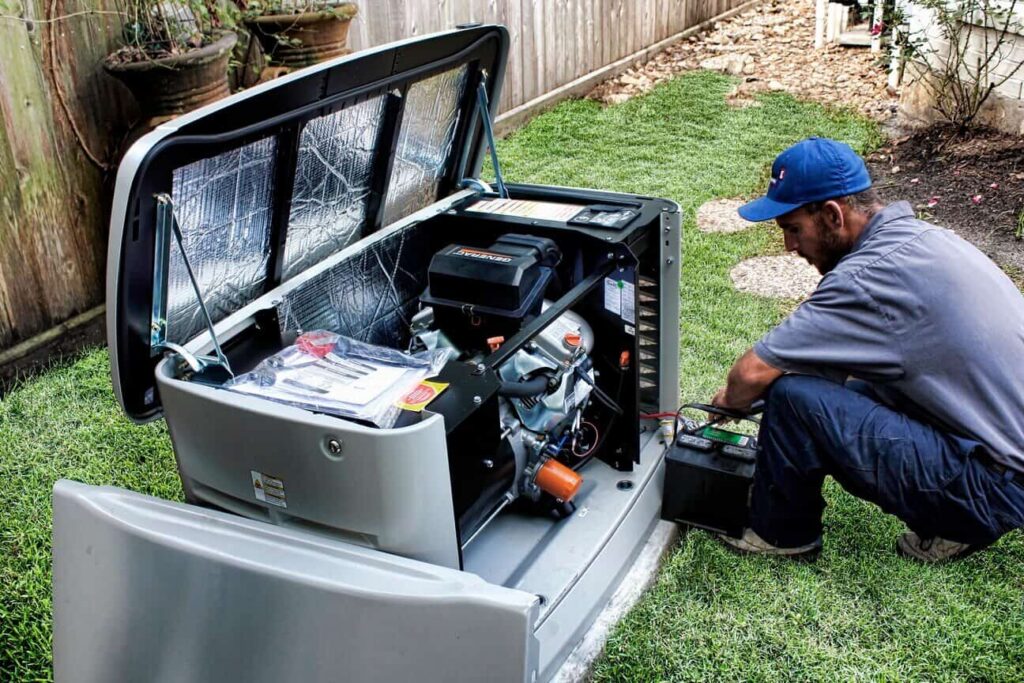
Installation Considerations
When determining the proper size of a standby generator, it is important to consult a qualified installer who can calculate anticipated electrical loads. It is common for 70% of all installations to use a 20kW air-cooled generator, especially in homes that are 2500 square feet or less. However, larger homes or all-electric homes may require liquid-cooled generators. It is important to consider the electricity requirements of the home when deciding on the generator size.
Budget planning is also an essential aspect of generator installation. Installation costs can vary widely, ranging from around $10,000 to well over $20,000. It is important to budget for installation costs to closely approximate the cost of the generator equipment. Additionally, it is important to determine whether a whole house generator installation or a partial house installation is needed. A partial house installation can be an effective means of providing power to essential circuits while saving on overall project costs. By consulting an industry professional and carefully considering electrical needs and budget planning, homeowners can make informed decisions when installing a standby generator.
| Considerations | Description |
|---|---|
| Generator Size | Consult a qualified installer to determine the proper size generator for your home and needs. |
| ATS Size | Make sure to match the size of the ATS with the size of the load center it will be connected to. |
| Electrical Circuits | Determine which electrical circuits are important to project total electrical load. |
also read : Generator Mobility Made Easy: Adding Wheels
Expert Advice
Consulting an industry professional before purchasing a standby generator is essential to ensure informed decision-making. An expert can help determine the appropriate generator size based on the anticipated electrical loads and the specific needs of the home. They can also provide guidance on the type of fuel options available and the generator maintenance tips to ensure the longevity of the equipment.
Generator fuel options vary depending on the type of generator and its purpose. Diesel generators are often used for industrial applications due to their durability and longevity, while propane and natural gas generators are more common for residential use.
Proper maintenance is crucial to ensure the generator runs smoothly and efficiently. Regular oil changes, air filter replacements, and battery checks are some of the basic maintenance tasks that should be performed. It is recommended to have a trained technician perform routine maintenance to ensure the generator operates properly in the event of a power outage.
Frequently Asked Questions
What permits are required for standby generator installation?
Standby generator installation regulations vary by locality, with some requiring permits and inspections. Permit requirements may include electrical, gas, and plumbing permits, and adherence to zoning and building codes.
Are there any ongoing maintenance costs associated with owning a standby generator?
Ongoing maintenance and warranty coverage are important factors to consider when owning a standby generator. Regular maintenance may include oil changes, filter replacement, and battery checks. Warranty coverage may vary depending on the manufacturer.
Will a standby generator increase my home’s resale value?
Resale benefits of a standby generator installation are difficult to quantify and may vary depending on the local real estate market. Installation restrictions such as zoning laws and homeowner association regulations may also impact the potential value added to a home.
Can a standby generator be installed in a small urban lot or only in a larger suburban or rural property?
The installation of standby generators on small urban lots can be challenging due to generator size restrictions. However, with the help of a qualified installer, the proper generator size can be determined to meet electrical needs.
Are there any government incentives or tax credits for installing a standby generator?
There are government incentives and tax credits available for installing standby generators in certain situations. These incentives vary by state and may include rebates, grants, or tax credits. It is recommended to research and consult with a professional to determine eligibility and requirements.
